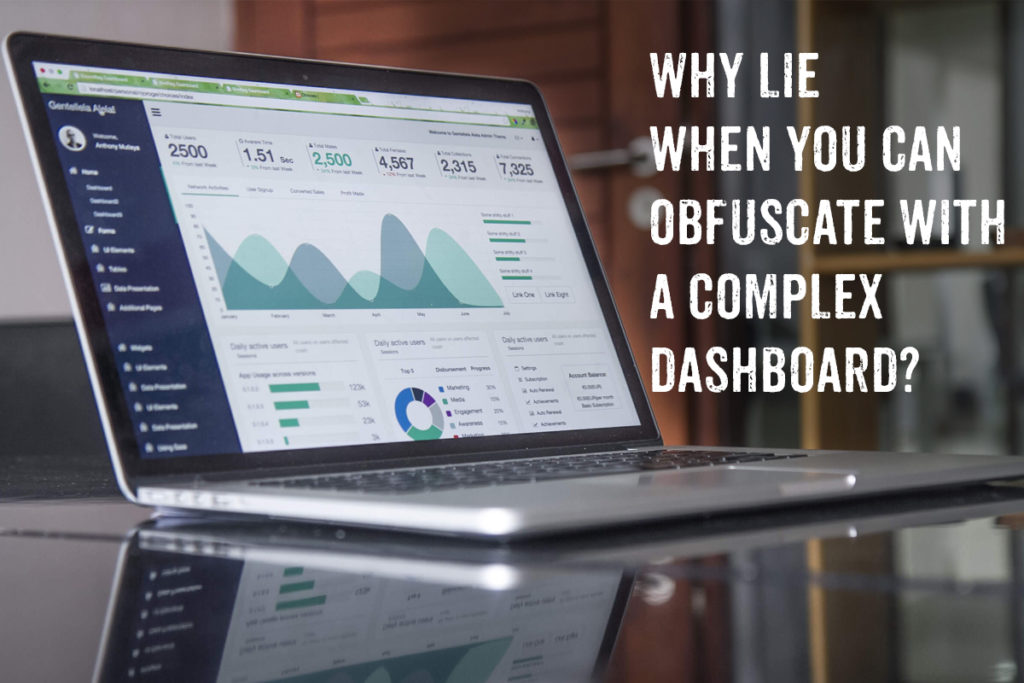Are you struggling with calculating ROI on your big data initiatives? You’re not alone. Many are reluctant to ask their peers about it, others don’t talk about it, but the elephant in the room needs to come atop the agenda, as does the culture that finds it appropriate not to discuss it.
It’s a hot business buzz word after all. No one wants to appear out of touch with best practices… but how do we know they are best practices? Who decides that? The leading providers of business information including management review, literature and insights from research firms, has always trended in vague support until the real data is overwhelming. So you can’t trust the business magazines, who now more than ever operate like gossip columns and pander for attention. The major research firms also sell the data, so their information too falls suspect.
Why are advisors and managers silent on the ROI on big data question?
First, many leaders, managers and advisors may have tied their careers onto big data initiatives, and bet the farm that it will pay out. And when the room goes silent on the ROI question, just as it has jumping into the details for other vague business buzzwords like social media, holacracy structures, and others, then you know you have a potential problem.
Second, advisors can describe the wave, what it looks like and it’s potential and that’s about it. Many of them have proudly championed these topics at 20,000 feet, and haven’t a clue how to put it to practice or integrate it and align it with the important parts of the organization. Many advisors want to ride the hype wave of big data don’t know how to surf.
Third, there is a tactical advantage to keeping the concept of Big Data murky, vague and untenable. It becomes a useful tool for obfuscation. Many professionals knowingly, or unknowingly directly leverage complex ill defined concepts to insulate their business model or department.

Here are two examples:
- VP’s, Product Managers, Sales managers, Marketing managers hide in metrics, charts and analyses to bury truth in complexity all the time. This isn’t bad practice of them though – it’s symptomatic of a disingenuous culture, industry, and work environment that would blame, punish and fire them for sounding alarm. This is what happens when employees don’t trust that you’d have their backs for being honest (even though the organization claims to value integrity). Obfuscation ensures they live to fight another day.
- Advisors, Consultants, SaaS providers, rely on on big data tools and their partners to validate and augment their value propositions, and rationalize larger, and more fee$ (Yes, I said it). Analytics, metrics, and research models have been doing this for years dumping bad data in with the good to upcycle it and bundle it into more expensive market research products. This creates hefty price tags and crappy products.
Fourth, and this is crazy but common, many companies are sold on the idea that the answer to their big data dilemma is more data. The strategy being, if you buy by the barrel, instead of the gallon, you’ll have more insights than anybody else. One need only look at the vague “insights” of the major business research firms to see that isn’t true. Usually these efforts result in more vague correlations or obvious observations like “the sky is blue”. Bigger data doesn’t ALWAYS mean better data.
Why is the ROI of Big Data initiatives such a difficult question to answer?

Well, it’s a big topic that affects the entire organization and just about every department. BIG Data isn’t one thing. It’s a whole lot of things.
- What market research tools should sales and marketing teams use?
- What top sheet analyses and dashboards should leadership look at?
- Which providers have business models positioned and dependent upon providing only the most relevant, actionable information? (HINT VERY FEW IF ANY).
- What are the most relevant signals to pay attention to?
- How are data sources prioritized?
These are but a few questions in the grand scheme of big data. And the reason that ROI is continuing to be elusive in these conversations, is that answering the question is being delegated to the middle of the organization, since it is not clearly understood at the top and by most advisors.
However, for advisors who are on the front lines getting their hands dirty, the multidisciplinary, cross-functional, thinker-builders, it’s easy to identify opportunities to leverage and refine efforts and specific strategies for various departments, industries, and sources.
An efficient way to address big data company wide, and not create big-data drags or get lost on buzz-word initiatives, is to make the organization as a whole more resilient to bullshit in the first place.
How do you make an organization data smart?
Use the soft infrastructure of the organization, the brand and culture. Establish a cultural posture of discernment. Equip the entire organization with the right and the duty to be skeptical, curious, to trust but verify.
- Back model not only the data /analysis tools to see if it’s providing signal or noise and to what degree.
- Consider the motivations, metrics and benefits to the source to have you thinking in terms of how they frame the data to begin with.
- Consider the data consumption habit. Is the organization mindful of the data it swallows, or does it eat everything on the table?
This strategy has implications that tie into and align with training initiatives with leaders and teams to ensure they have rock solid, shockproof shit detectors (as Ernest Hemingway would put it), know how to understand, weed out statistical fallacies, fallacious conclusions and quickly filter out and reject nonsense from the get-go. Such an investment is smaller in comparison to the countless billions of dollars wasted on big data more is better strategies, and all of the resources that must be dedicated to processing it and creating actionable intelligence with it. Equip your organization with a culture of discernment! This ensures not only that your organization is resilient to the noise, but that it only buys or invests in lean and clean data tools from the outset.
Refined, and filtered TLC, technology, leadership and culture is what Heroik does best. These practices of discernment and precision allow organizations like yours to operate leaner, travel lighter, maneuver more effectively and outperform the competition. If you’re ready to get serious about developing big data strategies, schedule a cup of clarity with us.





0 Comments